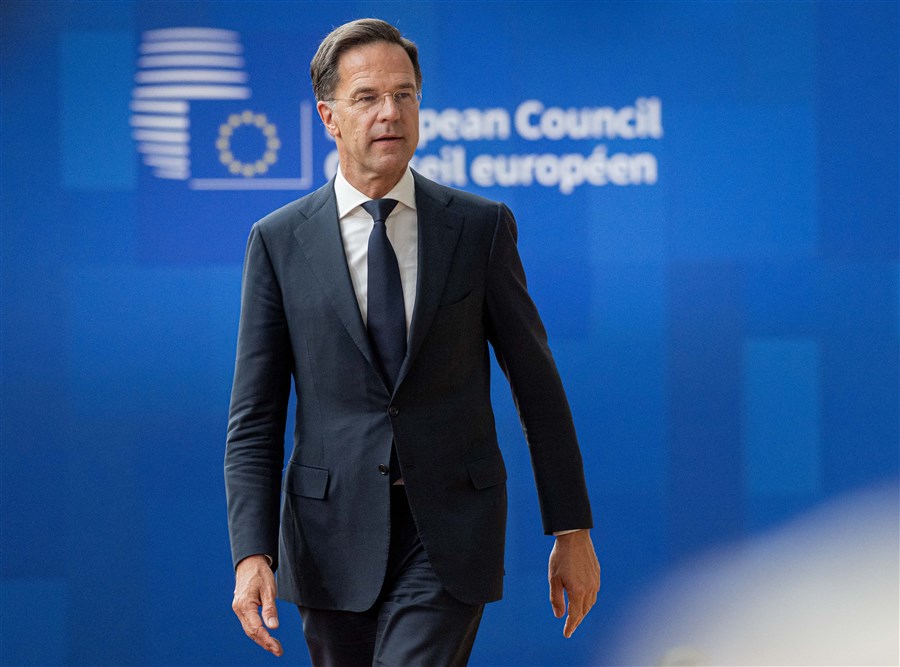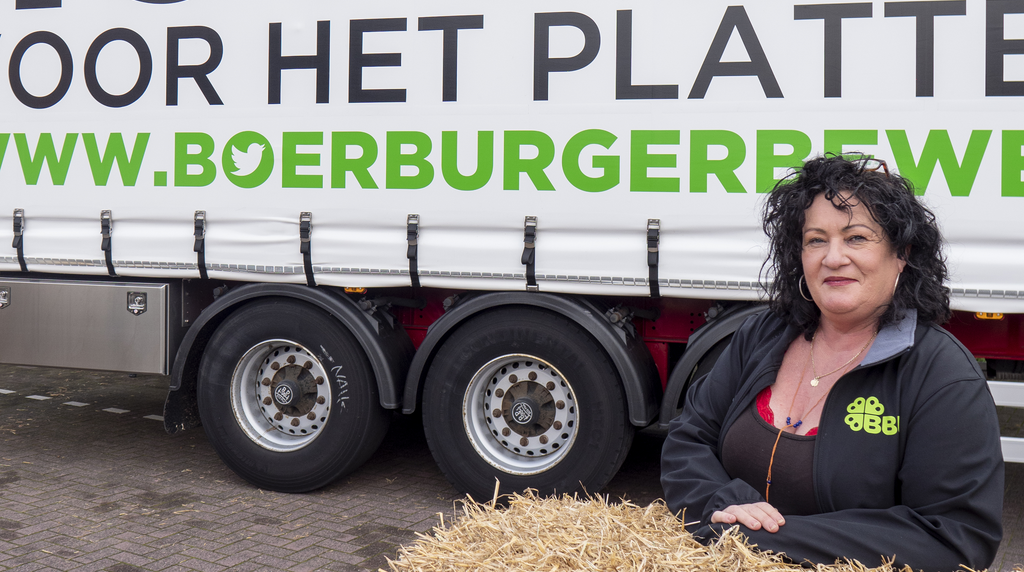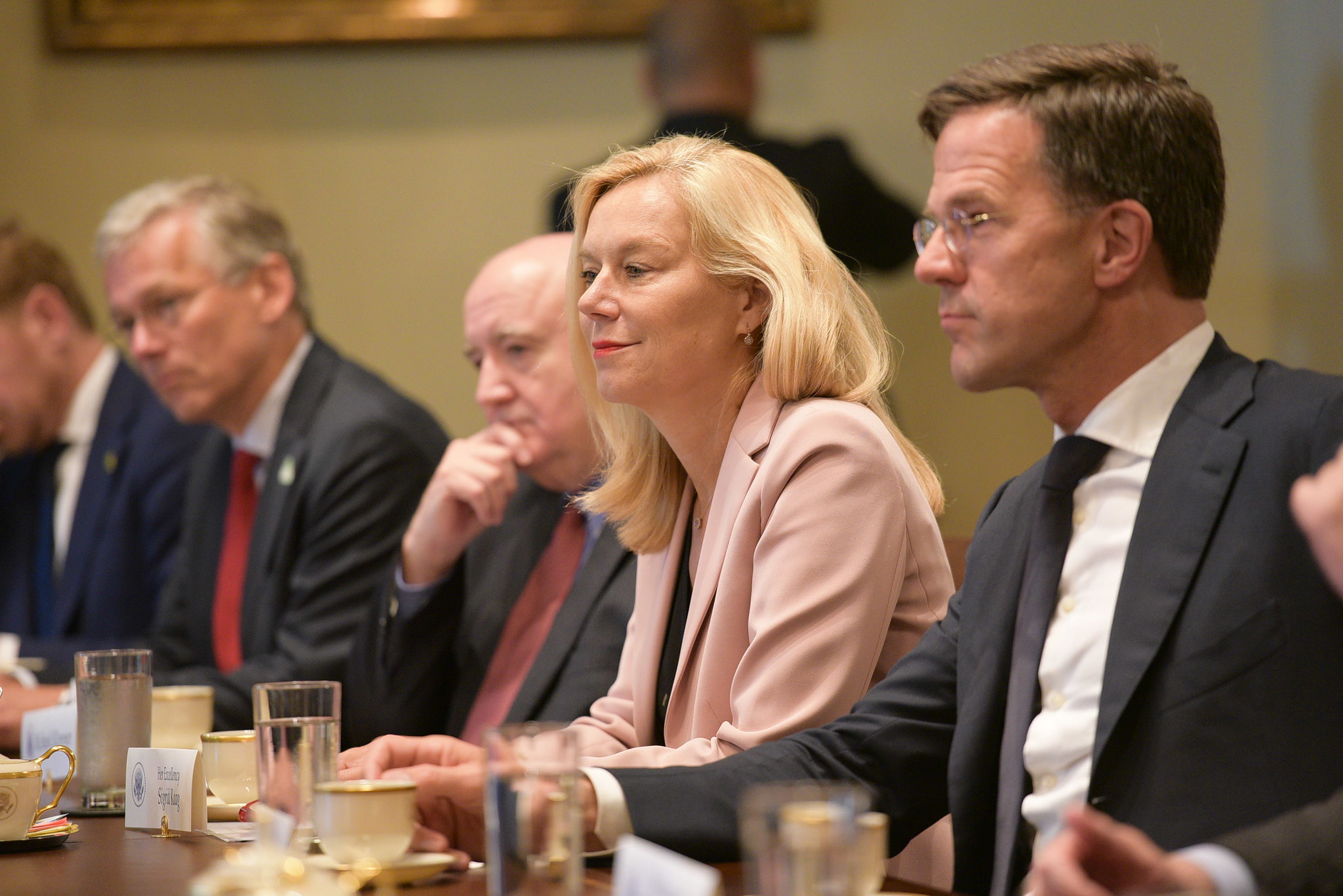The Dutch government has collapsed. The fourth Mark Rutte cabinet (consisting of VVD, CDA, D66, ChristenUnie) fell after a year and a half, brought down by disagreements over asylum and migration policies. The VVD (right-wing liberals) clashed head on with the ChristenUnie (‘social’ Christians) about a plan to restrict family reunification for refugees. None of the parties gave ground, leading to an unexpected collapse of the fourth (and final) Rutte government.
This government was never stable. After a very long formation period, it eventually consisted of the same parties as those of Rutte’s unpopular third government, based on a narrow margin, as these parties lost many votes since the previous election.
Trust in this government was never high and there is a general Rutte fatigue in society. When it took office, two-thirds of the population indicated that they wanted this to be the last Rutte government and had little or no confidence in it. That has not changed at all. A poll by EenVandaag shows that over 60 percent of the population is content with the fall of the cabinet, while as many as 72 percent say they do not want Rutte back as prime minister.
Their wishes will be granted, as Rutte announced on 10 July that he will leave politics after the new elections. This constitutes the end of an era. Rutte was the longest-serving Dutch prime minister ever, having remained in power since 2010.
“Teflon Mark” was a cunning bourgeois politician, who managed to strike deals between the VVD and all kinds of other parties in different cabinets, and cobble together ad hoc coalitions, always trying to shove away responsibility for unpopular policies on his coalition partners.
Rutte always served big business and implemented cuts to government services, education and healthcare. His governments were responsible for framing innocent working-class people, many of immigrant backgrounds, as being benefit fraudsters (read more about the child care benefit scandal here).
Little wonder that most Dutch people, including the politically advanced workers and youth (the youngest generation has never seen another prime minister in their politically conscious life) will be rejoicing that he won’t return.
Government of crisis
This government ruled in times of crisis. The economic rebound after the COVID-19 pandemic was short-lived and the economy slowed down considerably. The Netherlands may not have fallen into a recession (yet), but it has major problems. There is a huge housing crisis and a nitrogen crisis. In 2022, the Netherlands saw the highest inflation in 40 years, which led to a wave of strikes by workers in many sectors to defend their living standards, to the dismay of the bosses.
 Mark Rutte and his VVD party played an irresponsible game from the point of view of the ruling class / Image: Mark Rutte, Twitter
Mark Rutte and his VVD party played an irresponsible game from the point of view of the ruling class / Image: Mark Rutte, Twitter
The ruling class fears further instability and would prefer a strong government, but this is not possible now. The decline of the traditional bourgeois parties, the fragmentation in parliament and the lack of majority in the senate made this impossible.
Mark Rutte and his VVD party therefore played an irresponsible game from the point of view of the ruling class, entering onto a collision course to force concessions from the other government parties. As CDA (Christian Democracy) party leader Pieter Heerma put it, Rutte had taken an "irresponsibly tough" and "reckless" stance. After all this, the problems in the country show no sign of subsiding, which will lead to more destabilisation in the coming years.
The cause behind the clash
Clearly, things were inevitably going to come to a head. But why now? Clearly, Rutte came under pressure from the VVD party base to take a 'hard' course. The party has continuously lost support in the last period. There were many voices in the party, mostly in the provinces, that wanted a shift to even more right-wing anti-migration policies, in order to win back voters from the demagogues to Rutte’s right.
They were feeling the hot breath from right-wing reactionary parties (PVV, JA21) and media like Telegraaf and Algemeen Dagblad, which were seizing on the dire straits of the overburdened asylum system (due to years of budget cuts) to feed a racist hate campaign against migrants and refugees.
Rutte and Italian Prime Minister Meloni's recent trip to Tunisia for a “migration deal” was also made in that spirit. Rutte has experience in this field, as he was one of the architects of the EU deal with Turkish president Erdogan. However, Tunisian President Kais Saied himself is also pursuing a racist policy against black African migrants, so it is not certain that the deal (in which Tunisia keeps migrants in the country) will go through. To have something tangible to present to the people, Rutte wanted to reform the asylum system, in order, among other things, to make family reunions impossible for certain refugees.
For ChristenUnie, this went too far. Giving in to this policy would completely delegitimise its participation as a 'family party' in this unpopular government. The result was a confrontation which led the two camps within the government inexorably towards a fatal clash.
New parliamentary elections will be organised in November at the earliest. The government parties are sure to lose considerably. For the first time since 2010, the leading position of the VVD in parliament will be threatened. The ‘social-liberal’ D66 will also lose seats. The Christian Democrats of CDA, for decades the main bourgeois party which could expect around 30 percent of the vote, is at a historical low of 4-6 percent in the polls. The four government coalition parties collectively receive a maximum of 30-35 percent at the polls. The traditional bourgeois parties of the Netherlands are all in crisis.
The problem is that there is no credible working-class alternative on the left. The Dutch Labour Party (PvdA) is now proposing a joint “progressive list” with the green-liberal GroenLinks, as part of fusion negotiations. Far from a sign of strength, this is a sign of weakness. While they could win some seats (together they are at about 15 percent in the polls, compared to Labour’s current low of 11 percent), there is no strong “left revival”.
The reason is clear: they are seen as a left appendix of the Rutte government. Both parties in the last decade have been part of the government, or made deals with the government, supporting attacks on student grants, healthcare “reforms” (read: cuts), and the destruction of the old collective pension system in favour of individual pension pots.
Even worse are the perspectives for the left-reformist Dutch Socialist Party, which is only a shadow of what it was in the first decade of the century. It has not managed to gain anything in the last years and has a very old party base, having bureaucratically kicked out its youth organisation in late 2021 for being “communists”. Years of moderation and adaptation of chauvinist policies have led to a situation in which they will probably lose seats.
 In the absence of a combative political alternative from the labour movement, we can expect a gain for the demagogic right / Image: BoerBurgerBeweging, Wikimedia Commons
In the absence of a combative political alternative from the labour movement, we can expect a gain for the demagogic right / Image: BoerBurgerBeweging, Wikimedia Commons
In the absence of a combative political alternative from the labour movement, we can expect a gain for the demagogic right, in the first place the Farmer Citizen Movement (BBB).
Unlike far-right parties such as Forum voor Democratie or Geert Wilders’ party PVV, and despite being the product of a protest movement by farmers (albeit one dominated by reactionary elements) the BBB has won the trust of the ruling class.
It won the recent provincial elections and is almost everywhere participating in the new provincial councils, dutifully carrying out the interests of big capital, mostly with settled bourgeois politicians that jumped ship. This means there is a real chance that the demagogic party will co-rule nationwide, together with other bourgeois parties and maybe some of the “left” that don’t want to miss out on an electoral boost (in some provincial councils they are already in coalition with the centre-left).
However, this would not bring stability; on the contrary. It would expose the party as just another bourgeois outfit, representing the interests of big business. As fast as the rise of the party has been, it can also go down very fast again.
The working class needs its own political expression. The revival of the labour movement on the economic front (the wave of strikes in the last year) will sooner or later also find a political expression, but until it does, all sorts of demagogues will fill the vacuum.
It will therefore be a turbulent time. As REVOLUTIE, the IMT in the Netherlands, we are preparing for a future of class struggle and building a Marxist trend in the labour movement. We invite all communists in the Netherlands to join us and fight!

